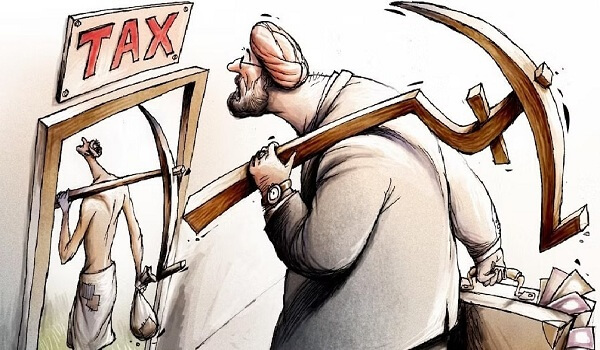Latest report titled Agricultural Policy Monitoring and Evaluation 2023 by the Organisation for Economic Co-operation and Development (OECD) has shed light on the implicit taxation of Indian farmers in 2022.According to a report Indian farmers were taxed USD 169 billion in 2022.
Organization for Economic Co-operation and Development
- The OECD is an intergovernmental economic organization, founded to stimulate economic progress and world trade.
- Most OECD members are high-income economies with a very high Human Development Index (HDI) and are regarded as developed countries.
- It was founded in 1961 with its Headquarters at Paris, France and total membership is 38 countries.
- The most recent countries to join the OECD were Colombia, in April 2020, and Costa Rica, in May 2021.
- India is not a member, but a key economic partner.
Key Highlights of the Report
India’s Negative MPS Dominance
- In 2022, India’s negative Market Price Support (MPS) accounted for over 80% of such taxes globally among 54 countries analyzed in the OECD report.
- Total implicit taxation for farmers across the 54 countries was approximately USD 200 billion. The implicit taxation imposed on Indian farmers reached a staggering USD 169 billion, making India a major player in this scenario.
Market Price Support (MPS)
- It is defined as the “annual monetary value of gross transfers from consumers and taxpayers to agricultural producers” due to policy measures that create a price gap between domestic and international markets.
- It is the measure of benefits or losses experienced by farmers when domestic prices deviate from world prices.
Offset Attempts in Emerging Economies
- Many emerging economies with negative MPS managed to offset it through budgetary support.
- However, in India’s case, different budgetary transfers to farmers in the form of large subsidies for variable input use, such as fertilizers, electricity, and irrigation water, Pradhan Mantri Kisan Samman Nidhi (PM-KISAN), did not offset the price-depressing effect of domestic marketing regulations and trade policy measures.
Impact on Indian Farmers
- While budgetary transfers constituted 11% of gross farm receipts, the negative MPS amounted to 27.5% for different commodities.
- This discrepancy resulted in an overall negative net support of 15% of gross farm receipts, a concerning situation for Indian farmers.
Export Policies in 2022
- In 2022, India introduced export bans, duties, and permits on several commodities, primarily as a response to the war in Ukraine and the 2022 heatwave.
- These policies aimed to prevent fluctuations in domestic prices but, in doing so, lowered farmers’ receipts.
- Commodities affected by these export policies included various types of rice, wheat, sugar, onions, and related products, such as wheat flour.
- Export restrictions directly affected India’s reliability as a supplier and exacerbated the persistent challenge of low farm incomes.
- These policies not only impacted domestic markets but also the country’s position as a global agricultural producer.
Global Perspective
- The OECD report highlighted that producer support to the agriculture sector across 54 countries averaged USD 851 billion annually during 2020-2022, a substantial increase attributed to responses to the Covid-19 pandemic, inflationary pressures, and the Ukraine war fallout.

